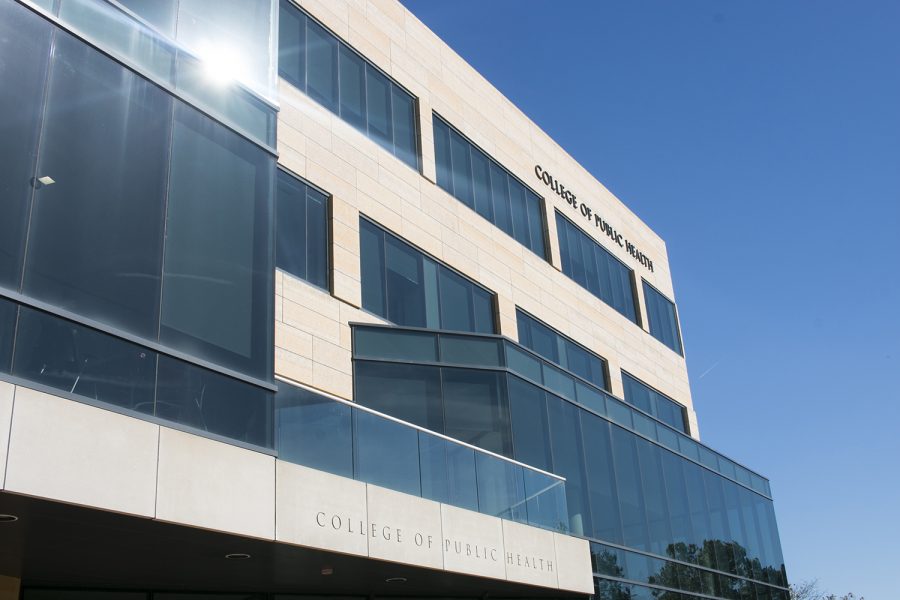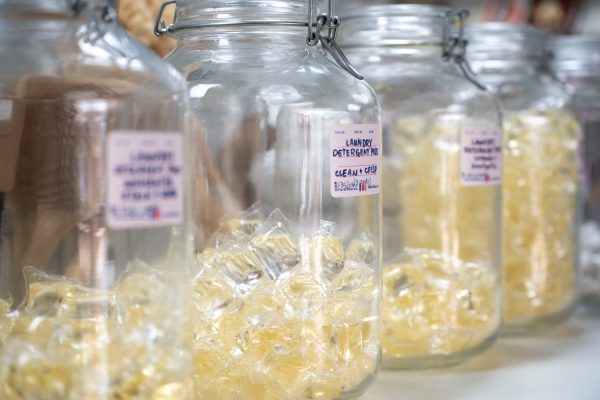UI researchers receive grant renewal to study birth defects and risks
The College of Public Health recently received a $4.3 million grant renewal to study different factors that may cause birth defects, and how pregnant women can lower their risk.
College of Public Health on Wednesday, Oct. 18, 2017.
October 26, 2018
The University of Iowa Public Health College recently received a $4.3 million grant renewal from the Centers for Disease Control & Prevention to examine how factors in early pregnancy may increase the risk of major birth defects.
The grant will be used to continue research in the Iowa Center of Excellence for Birth Defects Research and Prevention, particularly focusing on how Iowans may be exposed to elements that can cause defects.
Paul Romitti, a UI professor of epidemiology and the principal investigator under the grant, said there are many factors that contribute to birth defects.The grant renewal will help to further understand these factors and the risks they carry, he said. The Iowa Center of Excellence for Birth Defects Research and Prevention studies different genetic and environmental elements that may lead to risks in pregnancy in the hopes to treat birth defects and other congenital issues.
“We’ve been a funded center since 1996, and we are pleased to be able to continue our work for another five years,” Romitti said. “We are excited to continue what we think is cutting-edge work to address prominent medical issues.”
The center also participates in the Birth Defects Study to Evaluate Pregnancy Exposures, a branch of a national program that tries to reduce the risk of birth defects. It mostly focuses on factors that pregnant women can control during their pregnancies, including physical activity, treatments for infertility, and medication use.
Romitti said the grant renewal will focus on the use of medications while going through cancer or other disease treatment. The research will also focus on environmental factors that can affect Iowans, including pesticide exposure, water contamination, and other risks.
Professor Jacob Oleson, the director of graduate studies in the Public Health College, said a goal of the grant renewal is to help patients understand what steps they can take to reduce the risk of birth defects, as well as to show people how they could be at risk.
“I want to be able to help Iowans, including me, to better understand birth defects, how we can reduce the chances of them in the future, and to help those that have experienced them,” Oleson said.
Researchers involved in the field also hope to be able to find specific genetic factors that may lead to birth defects. Professor Thomas Scholz, the director of Child and Community Health in the Carver College of Medicine, said it is important to find genetic links to medical issues in order to best serve patients and their families.
“Defining these relationships will help to better counsel people looking to start a family,” Scholz said. “There may also be public-health measures that can be implemented based on these findings that will make all Iowans healthier.”














